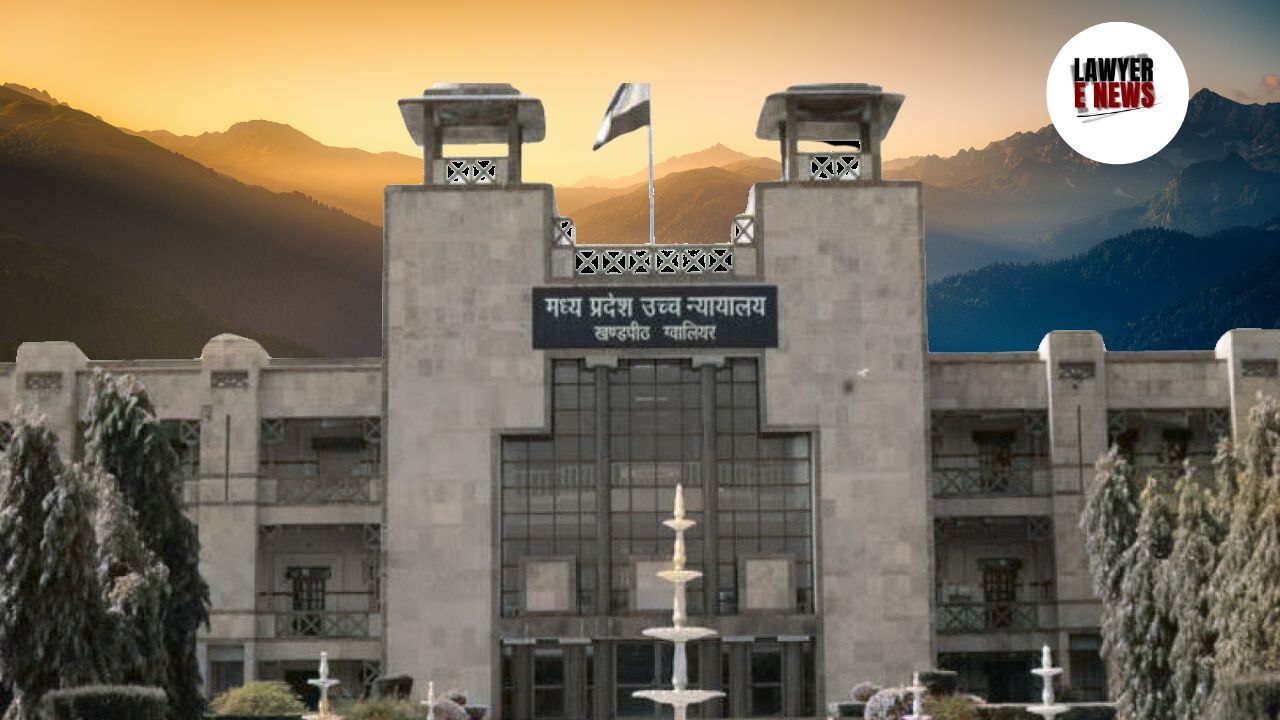-
by sayum
16 February 2026 10:31 AM



In a recent judgment reinforcing the principle that a husband’s financial limitations cannot be an excuse to evade maintenance, the Madhya Pradesh High Court dismissed a plea challenging the Family Court's order awarding ₹4,000 per month as interim maintenance to the wife.
Justice G. S. Ahluwalia, while upholding the Family Court's decision, ruled that an able-bodied husband is duty-bound to maintain his wife, regardless of his limited income. Citing the Supreme Court's judgment in Rajnesh v. Neha (2021) 2 SCC 324, the Court observed, "If the husband is an able-bodied person, then his meager salary will not be a hurdle for grant of maintenance to his wife."
The petitioner had also sought to deny maintenance on the grounds that the wife was allegedly involved in an extramarital affair. Rejecting this argument, the Court clarified that under Section 125(4) CrPC, maintenance can be denied only if the wife is proved to be ‘living in adultery’, meaning engaging in physical relations outside marriage.
"Even if a wife is having love and affection towards somebody else without any physical relations, that by itself cannot be sufficient to hold that the wife is living in adultery," Justice Ahluwalia held, emphasizing that emotional attachment does not amount to adultery.
"Filing for Restitution of Conjugal Rights Does Not Automatically Disqualify a Wife from Maintenance"
The husband also contended that since he had filed a petition for restitution of conjugal rights (Section 9 of the Hindu Marriage Act, 1955), the wife had no right to claim maintenance. However, the Court found this irrelevant, as the petition had already been withdrawn and was no longer pending.
The Court further noted that even if a decree for restitution of conjugal rights is passed, a wife is still entitled to maintenance unless she deserts her husband without reasonable cause. Citing Rina Kumari v. Dinesh Kumar Mahto, SLP (Criminal) No. 5896/2024, Justice Ahluwalia reiterated: "Even if a decree under Section 9 of the Hindu Marriage Act has been passed, still the wife is entitled to maintenance."
"Mere Allegation of Wife’s Independent Income Without Documentary Proof Cannot Be a Basis to Deny Maintenance"
The petitioner further argued that his wife was financially independent, running a beauty parlour, and therefore not entitled to maintenance. However, the Court rejected this claim, holding that no documentary evidence was produced to substantiate her alleged earnings.
"Mere bald submission that the wife is running a beauty parlour is not sufficient to deny interim maintenance, especially when no document has been filed to show that she owns or rents a shop," the Court observed.
"Public Notice of Disownment by Father is a Mere Legal Formality, Not a Shield Against Maintenance Obligations"
The husband also relied on a public notice issued by his father, declaring that he had been disowned from the family property. The Court dismissed this argument as a mere camouflage to evade maintenance obligations, noting that the petitioner continued to reside at the same address as before.
"If the applicant has truly been dispossessed from his father’s property, then how is he still residing at the same address? This public notice appears to be a mere legal formality with no real effect," the Court remarked.
"Wife Entitled to Maintenance Under Multiple Laws, But Courts Must Consider Existing Awards While Determining Quantum"
Addressing the quantum of maintenance, the Court observed that the Family Court had already taken into account the ₹4,000 per month awarded to the wife under Section 24 of the Hindu Marriage Act. The Court reiterated the principle that a wife is entitled to maintenance under multiple statutes, but while determining the amount, courts must ensure no duplication of reliefs.
"A wife is entitled to maintenance under every statute, but courts must consider amounts already awarded under different laws before granting further relief," Justice Ahluwalia stated.
"Husband's Duty to Maintain Wife is Paramount, Regardless of Income Constraints" – Criminal Revision Dismissed
Concluding that there was no material illegality in the Family Court's decision, the High Court dismissed the criminal revision petition.
"If the husband is an able-bodied person, then he cannot run away from his liability. If he has married knowing his financial limitations, he must still find a way to maintain his wife," the Court ruled.
Thus, the Madhya Pradesh High Court upheld the Family Court’s order granting ₹4,000 as interim maintenance, reinforcing the principle that a husband cannot shirk his financial responsibility towards his wife on the pretext of a low income or other legal maneuvering.
Date of decision: 05/02/2025
